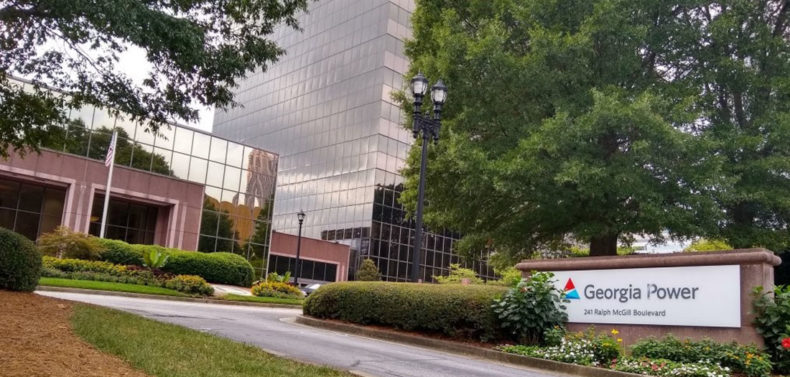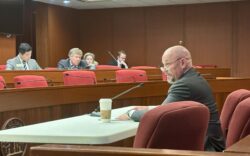At the onset of Georgia Power’s rate case last week, lawyers advocating for the public’s interest pressed company officials to disclose whether future plans beyond the 2022 rate case could drive up customers’ bills by 45% over the next several years.
Some of the people who would get the higher electricity bills gave the five-member state Public Service Commission an earful about how their household budgets would be strained to the breaking point. Eugene Vickerson, a 76-year-old, said in his small rural community of Hawkinsville many people are frustrated with Georgia Power for not managing its business better. “You’ve got the only dance in town, and every time I look around this, there’s another request for higher rates,” Vickerson said. “It’s not that people don’t think that we need lights, but it needs to be reasonable.”
The rate case hearings for the state’s largest electricity supplier began with its top executives advocating that the PSC approve a 12% rate increase on the average residential household by 2025. As the company transitions to cleaner energy generation and newer technologies, it says it is spending $12 billion to shore up its infrastructure and ramping up spending to retire its remaining coal-fired plants and complete toxic coal ash storage storage projects.
If state regulators agree to Georgia Power’s plan as proposed, starting next year the typical residential customers would have $14.32 added to their monthly rates. Smaller increments would eventually top out at $16.29 by 2025, or nearly $200 more annually to keep the lights on.
But PSC attorney Preston Thomas said that amount would be well surpassed when factoring in other expenses the company is expected to recoup within the next several years, starting with a $1 billion fuel recovery that Georgia Power is expected to request early next year, a fee that would further increase the burden on the typical residential ratepayers by another $6 per month.
The fuel recovery would be used to reimburse Georgia Power for money it’s already spent on fuel, as natural gas prices have soared in the past year, and would include projections on future prices. For years, a separate line item has been charged to Georgia Power customers for capital expenses on the Plant Vogtle nuclear expansion project, which have ballooned to more than double from the company’s initial projection of $14.3 billion.
“So walking through four additional revenue requests that are going to be coming before this commission, would you agree that the impact of all four increases would be in the range of $55–$60 per month for the typical residential customer, approximately a 45% increase?” Thomas asked Georgia Power President and CEO Chris Womack.
Commissioner Lauren “Bubba” McDonald said Georgia Power would only be recouping fuel expenses in a volatile market where prices have skyrocketed and federal policies made running utilities more expensive. The company can’t control the cost of natural gas or coal. “It’s not Georgia Power that is making any profit on it,” McDonald said.
The five-member commission is scheduled to vote on the rate case by Dec. 20, but before that big decision day it is receiving input from Georgia residents concerned about another rate increase. Hearings are scheduled to continue in November.
Thomas suggested that Georgia Power and the commission reduce some of the immediate plans for the system’s electrical grid in order to provide some financial relief to ratepayers, who are expected to foot a larger portion of fuel costs and more nuclear bills.
As soon as Vogtle’s Unit 3 begins producing electricity, Georgia Power will have the right to charge customers an additional $302 million, or about $5.20 a month, for expenses that were incurred prior to the construction budget exceeding a $7.3 billion limit set by commissioners and the plants’ owners. According to a Georgia Power executive, if the costs associated with Vogtle’s two units are taken into account, rates would rise by 10%.
Commissioner Tim Echols asked whether Womack believed delaying some infrastructure investment would undermine the company’s reliability. Womack responded that replacing the aging transmission system and shoring up the distribution network that carries the electricity into homes and businesses are critical.
“We understand that making the investments our customers need will result in additional cost,” he said. “We’re always sensitive to the price of electric service and how it impacts our customers.
“At the same time, we must make the necessary investments to ensure we can continue to meet the needs of our customers as Georgia continues to grow,” Womack said. “We work to balance our customers’ need for affordable electricity with our obligation to provide clean, safe and reliable service.”
This article originally appeared at georgiarecorder.com.
Like what you just read? Support Flagpole by making a donation today. Every dollar you give helps fund our ongoing mission to provide Athens with quality, independent journalism.










